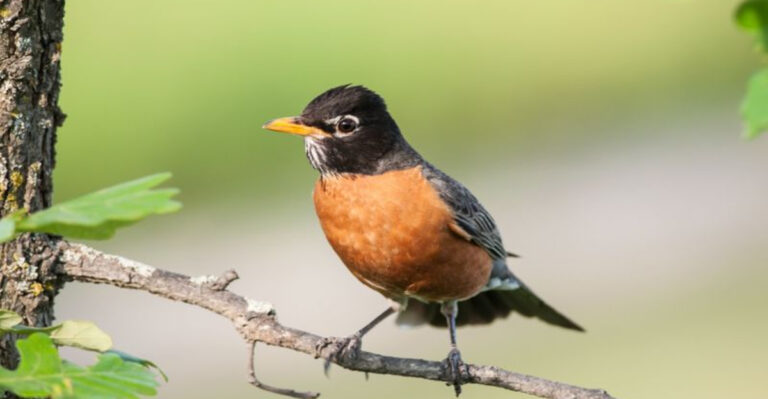12 Essential Things Every Budgie Owner Needs To Know
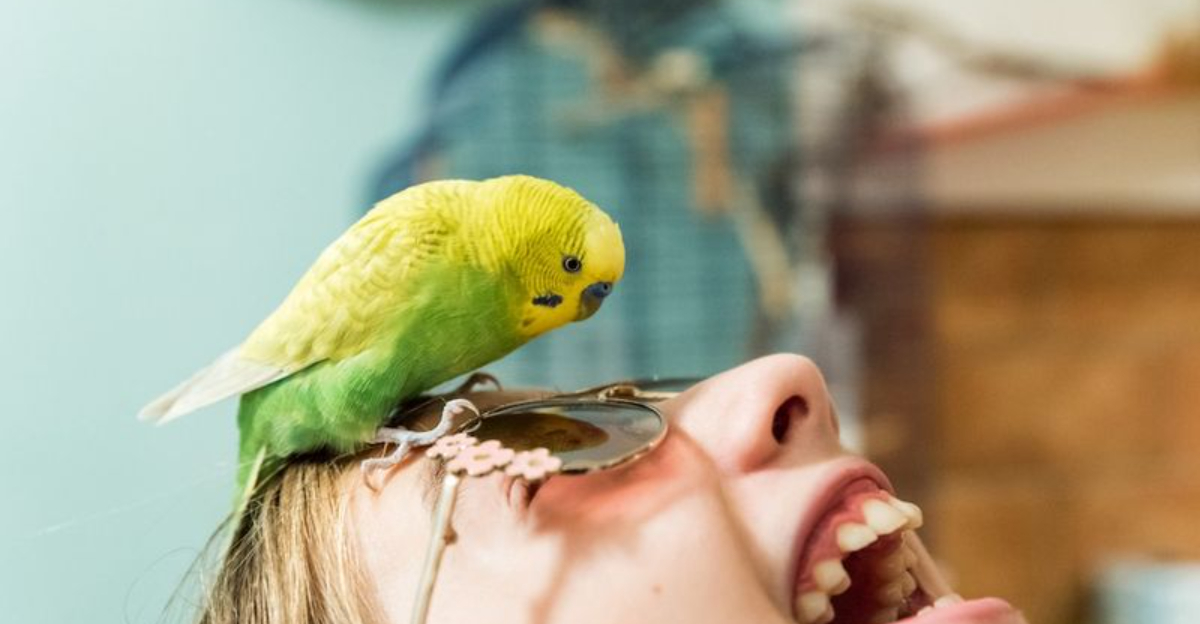
Owning a budgie can be a joyful and rewarding experience. These small, colorful birds brighten up any home with their cheerful chirps and playful antics.
However, like any pet, they require proper care and understanding.
Whether you’re a first-time budgie owner or a seasoned bird enthusiast, knowing these essential tips will ensure your feathered friend stays happy and healthy.
1. Understanding Budgie Behavior
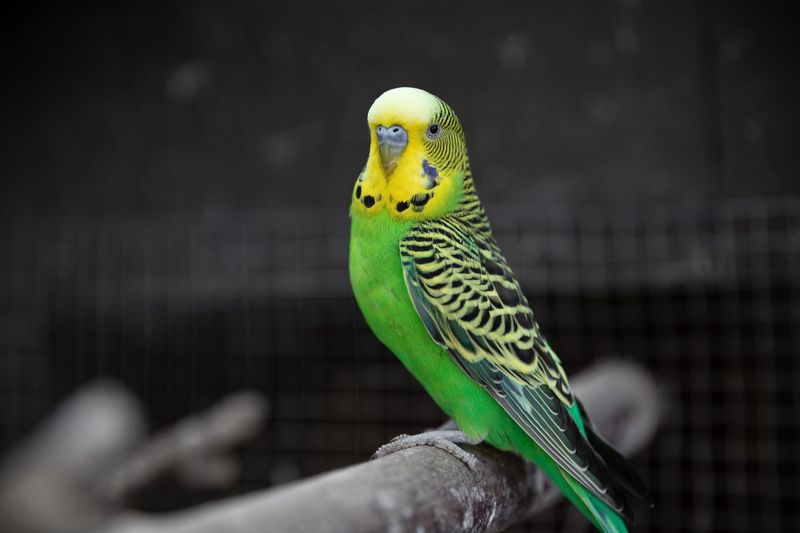
Budgies are curious creatures with a playful spirit. They love to explore their surroundings and often mimic sounds they hear.
Understanding their behavior is crucial for building a trusting relationship. Pay attention to their chirps and body language. When a budgie is comfortable, it may grind its beak or fluff its feathers, indicating relaxation.
Budgies thrive on interaction, so spend time talking and playing with them daily to keep them mentally stimulated and socially engaged.
2. Choosing The Right Cage
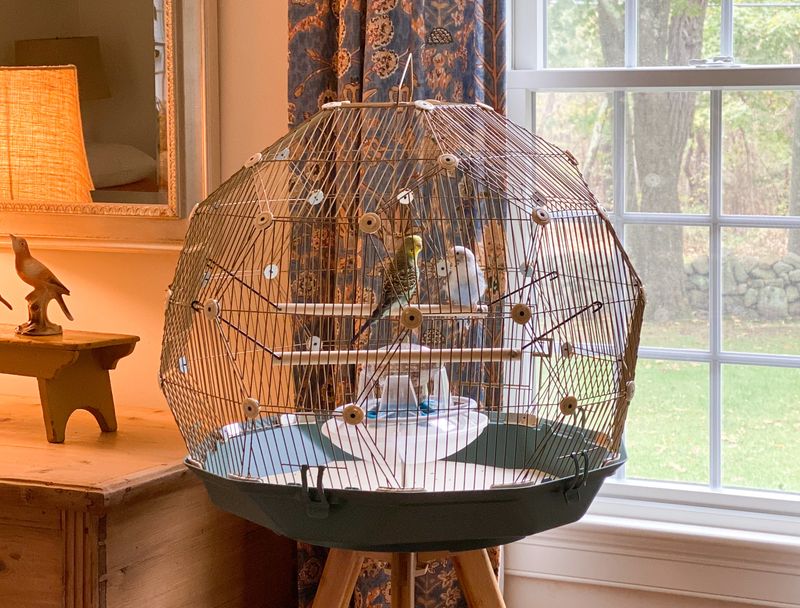
The right cage is a budgie’s sanctuary. It should be spacious enough for your bird to flap its wings and move freely.
Opt for a cage with horizontal bars, which allows budgies to climb and explore. Include perches of varying thicknesses to exercise their feet.
Position the cage in a draft-free area with plenty of natural light, but avoid direct sunlight. Keep it away from kitchens and other areas with strong fumes.
Cleaning the cage regularly is essential to maintaining hygiene and preventing diseases. A happy budgie is one with a clean and comfortable home.
3. Proper Diet And Nutrition
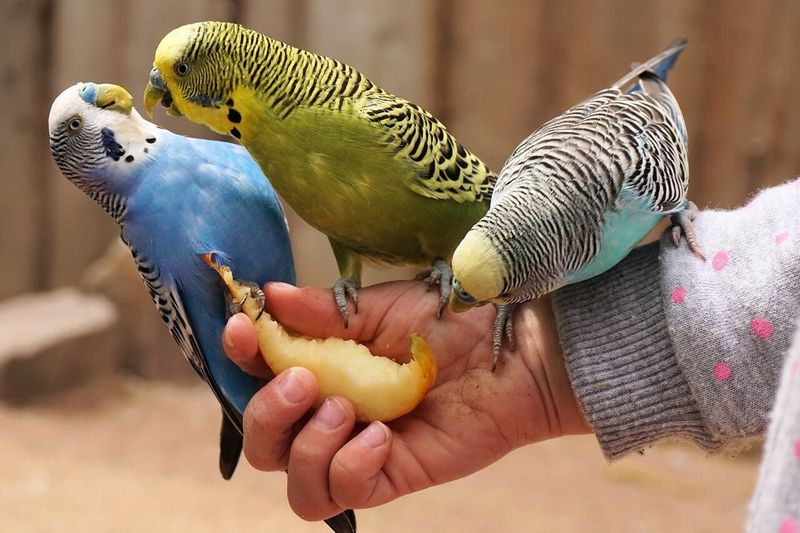
A balanced diet is vital for a budgie’s health. Seeds alone aren’t sufficient; they should be complemented with fresh fruits and vegetables.
Offer a variety of foods like spinach, carrots, and apples to ensure they get all the necessary nutrients. Introduce new foods gradually to prevent digestive issues. Fresh water must be available at all times.
Avoid giving them avocado, chocolate, and caffeine, as these are toxic to birds. Monitor their weight and eating habits to catch any health issues early. A well-fed budgie is an active and healthy companion.
4. Socializing Your Budgie

Budgies are social butterflies and thrive on interaction. If you’re a single budgie owner, make sure to spend quality time with your pet.
Talk to them regularly and let them perch on your finger or shoulder. This strengthens your bond and keeps them happy.
If you have more than one budgie, observe their interactions to ensure they get along. Introduce them to each other gradually to prevent conflicts.
Socialization helps in preventing loneliness and boredom, which can lead to destructive behavior. A socially active budgie is a content and well-adjusted pet.
5. Importance Of Regular Vet Checkups
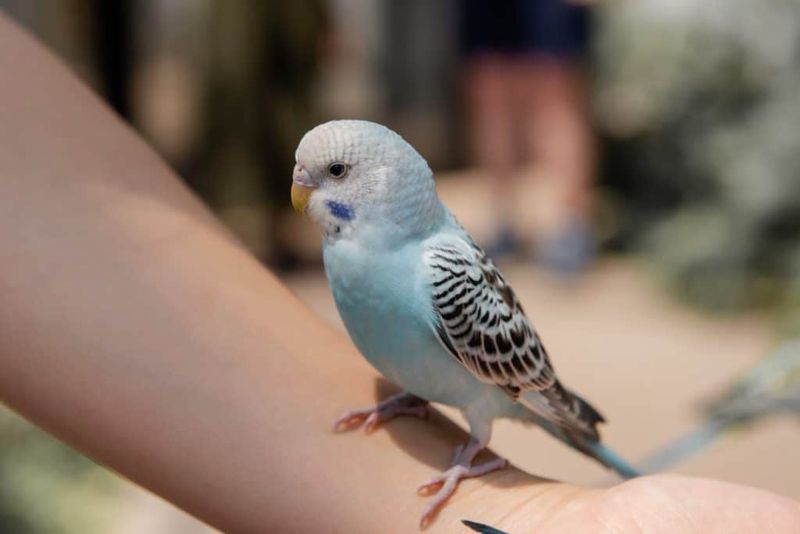
Regular vet visits are essential to monitor a budgie’s health. Birds often hide illnesses, so checkups help catch potential issues early. Find a vet specialized in avian care, as they are best suited to address specific needs.
During visits, vets can trim nails and check for parasites. Regular health checks ensure your budgie lives a long, happy life. Look out for signs of illness like changes in appetite or droppings.
A proactive approach to health keeps your feathered friend thriving and reduces the risk of serious health problems.
6. Creating A Stimulating Environment
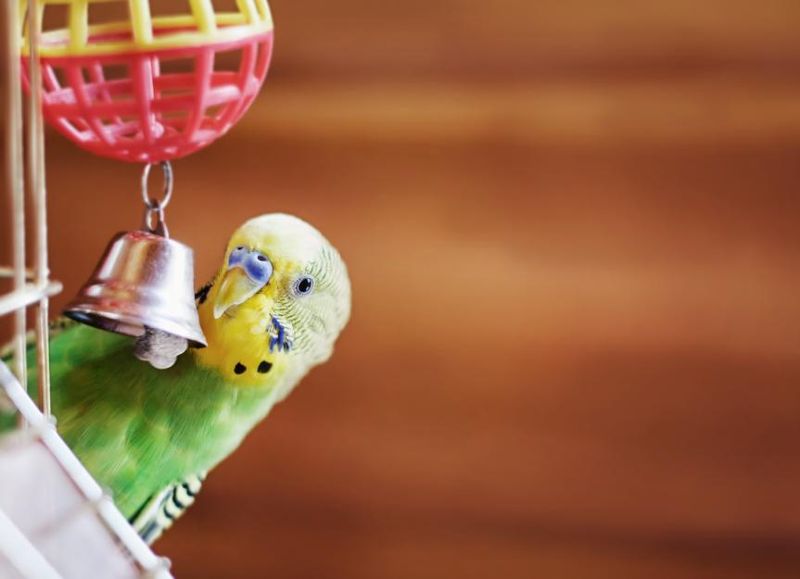
Budgies need mental and physical stimulation to stay happy. Provide plenty of toys and activities to engage them.
Rotating toys regularly keeps things fresh and exciting. Consider puzzle toys to challenge their intelligence and keep them occupied.
Allow your budgie out-of-cage time in a safe environment to stretch its wings and explore. Ensure windows and mirrors are covered to prevent accidents.
A stimulating environment fosters curiosity and prevents boredom, contributing to your budgie’s overall well-being and contentment.
7. Signs Of A Healthy Budgie
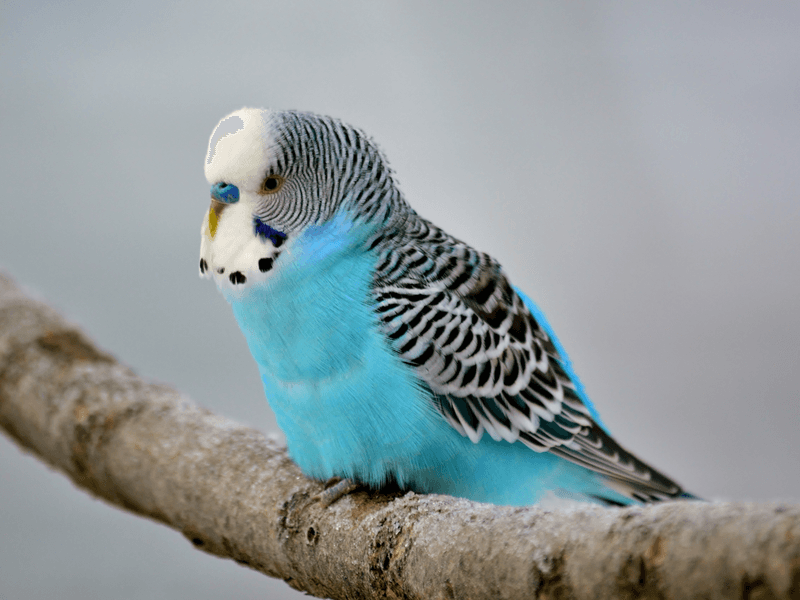
Recognizing a healthy budgie is key to providing proper care. Bright eyes, smooth feathers, and an active demeanor are indicators of a bird in good health. Regular singing or chirping signifies happiness.
Keep an eye on their droppings; consistent changes can signal health issues. Weigh your budgie occasionally to ensure they are maintaining a healthy weight.
A healthy budgie is curious and enjoys interacting with its environment. Observing these signs helps in early detection of any potential problems and ensures a joyful life for your bird.
8. Training Your Budgie
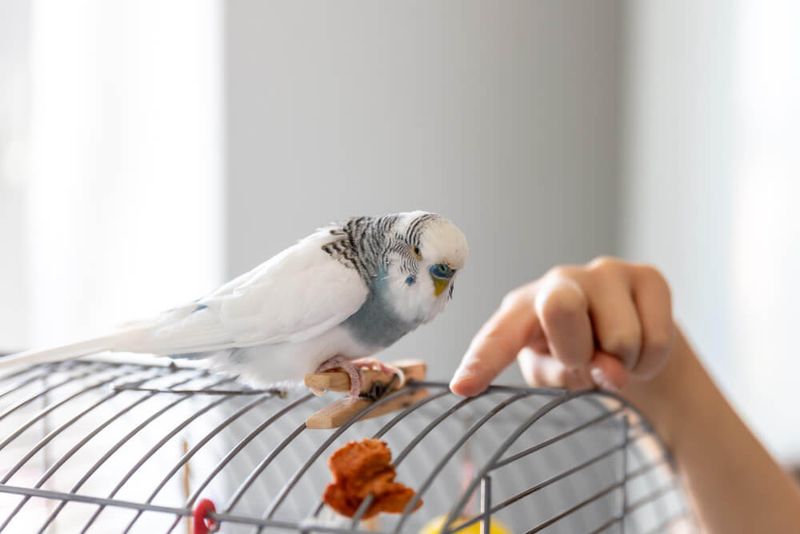
Training a budgie can be a fun and rewarding experience. Start with simple commands like ‘step up’ using gentle encouragement and treats. Consistency is key; short, daily sessions work best.
Use positive reinforcement to motivate your bird. This strengthens the bond between you and your pet. Gradually introduce more complex tricks as your budgie becomes comfortable.
Training is not only beneficial for behavioral management but also enhances mental stimulation, keeping your budgie engaged and active.
9. Managing Molting Seasons
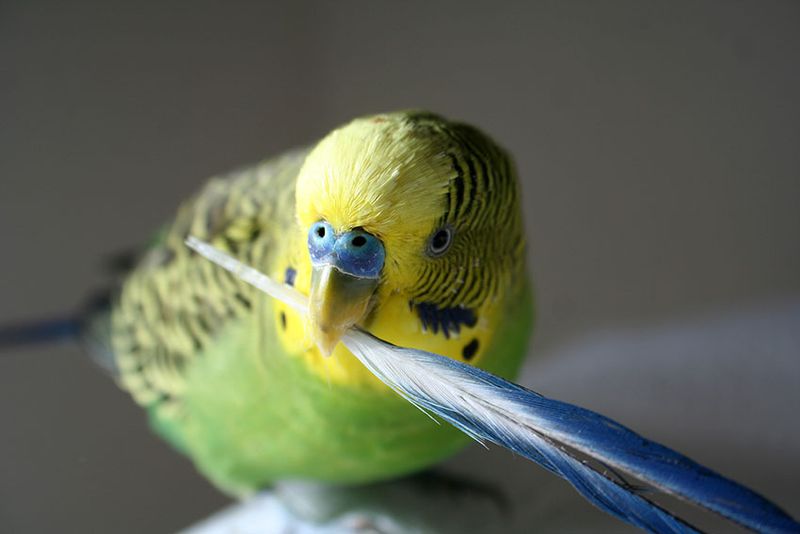
Molting is a natural process where budgies shed old feathers to make way for new ones. During this time, they may seem irritable and less active. Providing a balanced diet rich in nutrients helps them through this phase.
Offer more out-of-cage time to reduce stress. Ensure they have a comfortable place to rest, away from drafts.
Molting can last several weeks, and patience is key. Understanding this cycle ensures you provide the best care as your budgie renews its plumage, emerging with vibrant, fresh feathers.
10. Safety Precautions At Home
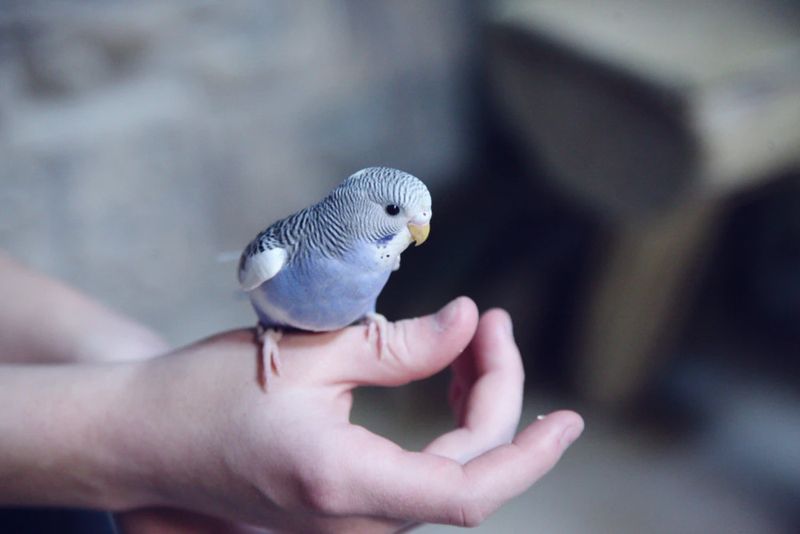
Creating a safe home environment is crucial for your budgie’s safety. Remove any toxic plants, cover electrical wires, and ensure windows and mirrors are clearly marked.
Monitor interactions with other pets to prevent accidents. Keep hazardous substances and foods out of reach. Supervise out-of-cage time to ensure your budgie’s curiosity doesn’t lead to harm.
A safe environment allows your budgie to explore without fear, fostering a sense of security and well-being. Safety measures protect your feathered friend and contribute to a happy, carefree life.
11. Dealing With Common Budgie Health Issues
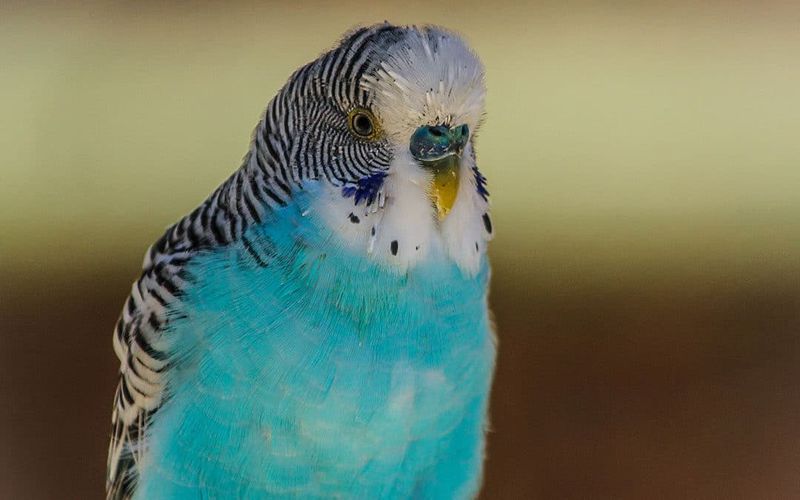
Budgies can face various health issues like respiratory problems or feather plucking. Early detection is crucial.
Watch for symptoms such as sneezing, wheezing, or changes in behavior. Consulting a vet at the first sign of trouble can prevent more severe problems.
Maintain a clean, stress-free environment to reduce health risks. Provide a balanced diet and regular exercise.
Understanding common health issues and being proactive in care ensures your budgie stays vibrant and healthy, enhancing its quality of life.
12. The Joy Of Budgie Companionship
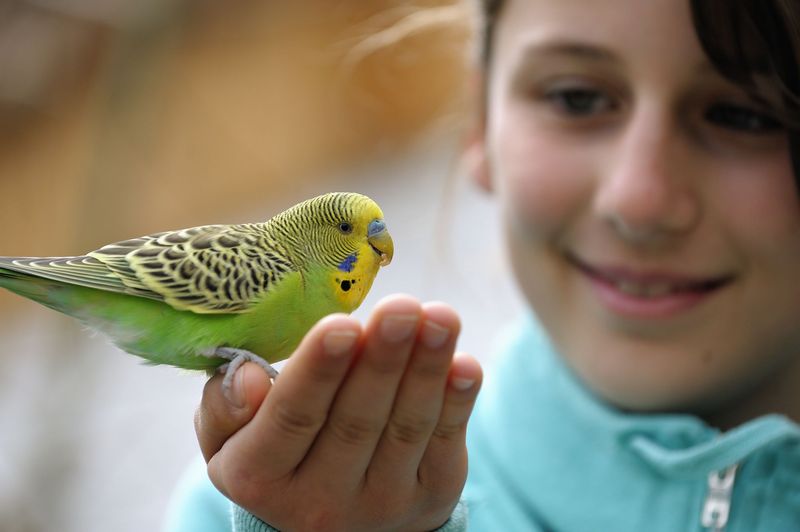
Budgies bring joy with their cheerful personalities and lively antics. Their companionship is rewarding and can brighten any day. Building a strong bond through interaction and care leads to a fulfilling relationship.
These small birds have a big impact, offering moments of laughter and love. Watching them play or learn a new trick brings a sense of accomplishment and happiness.
A well-cared-for budgie enriches the lives of its owners, providing endless joy and affection in return.






